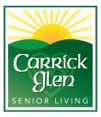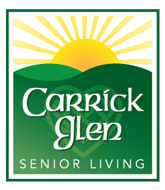As our loved ones grow older, daily life can slowly become more challenging. From managing medications to preparing meals or keeping up with housework, small changes in routine can hint at bigger shifts in overall well-being. Sometimes, they may need professional support. So, what are your options?
If your loved one needs some everyday assistance, assisted living can help. Assisted living offers a balanced approach based on personal support, safety, and community. And every day, the community works hard to help residents maintain their independence and autonomy.
Some of the common signs it’s time for assisted living include:
- Struggles with daily activities
- Declining physical health
- A noticeable decline in hygiene
- Increased social isolation
- An unsafe living environment
- Unexplained weight loss
- Medication mismanagement
- Financial challenges
What Is Assisted Living?
Assisted living is a type of senior care that combines housing, personalized support services, and access to healthcare. It’s built for older adults who may need help with daily routines but still want to live independently where they can.
Assisted living offers:
- Nutritious meals
- Medication management
- Help with bathing, dressing, & grooming
- Mobility assistance
- Transportation services
The goal is to create a lifestyle that’s both safe and fulfilling. Residents typically live in private or semi-private apartments, with access to shared spaces and care when needed. Staff are available around the clock, and services are tailored to individual needs.
8 Signs It’s Time for Assisted Living
As needs evolve, certain signs may indicate that assisted living could be a positive step forward. These signs often appear gradually, and noticing them early can make the transition smoother.
- Struggles with Daily Activities
When daily activities start to become difficult, it’s often a sign that support is needed. You might notice things like:
- Meals being skipped or replaced with snacks
- Dirty laundry piling up or clothes worn for several days
- Difficulty with basic grooming like brushing hair or teeth
- A home that’s become cluttered or unclean
In an assisted living setting, these tasks are supported with dignity and respect. Residents receive help where they need it—while continuing to enjoy the parts of daily life they can do on their own.
- Declining Physical Health
Changes in your loved one’s health can be subtle or sudden. You might notice your loved one is visiting the doctor more often, recovering more slowly from illnesses, or experiencing more frequent falls. These are signs that living at home may no longer be the safest option.
- Noticeable Decline in Hygiene
A shift in personal hygiene may reflect more than just forgetfulness. It might signal that routines like bathing or changing clothes have become physically taxing or emotionally overwhelming. Assisted living communities offer respectful help with hygiene-related tasks. This kind of support can help your loved one’s confidence, mood, and social engagement.
- Increased Social Isolation
Spending too much time alone can be hard on mental and emotional health. If your loved one has stopped attending events, avoids phone calls, or shows signs of withdrawal, they may be experiencing social isolation.
In assisted living, residents are part of a built-in community. Daily activities, shared meals, and group outings provide connection and joy.
- Unsafe Living Environment
An unsafe home can lead to injury or illness. If you’ve noticed changes like expired food in the fridge, burnt pans on the stove, or loose rugs and clutter, it could mean your loved one is struggling to manage the home safely.
Some common red flags include:
- Stairs or hallways blocked with clutter
- Neglected maintenance (leaky faucets, burnt-out lights)
- Signs of food spoilage or unsafe cooking practices
- Poor lighting or lack of grab bars in bathrooms
Assisted living is designed with safety in mind to keep your loved one safe every day.
- Unexplained Weight Loss
Weight loss in older adults can result from many factors: fatigue, loss of appetite, medication side effects, or difficulty preparing food. Whatever the reason, it can have a serious impact on nutrition and overall well-being.
In assisted living, meals become social, enjoyable, and reliable again. If needed, staff can monitor eating patterns and flag any concerns early.

- Medication Mismanagement
Keeping up with multiple prescriptions can be tough. Your loved one might forget doses, take the wrong medication, or stop taking something altogether.
Medication management is one of the most important aspects of senior living. In assisted living, trained staff help residents take their medications correctly and on schedule. This helps reduce the risk of hospitalization and supports better health outcomes over time.
- Financial Challenges
You might start noticing issues with financial management. These challenges often come from confusion, memory lapses, or an inability to keep up with paperwork.
Common signs include:
- Unopened mail or unpaid utility bills
- Multiple donations to unfamiliar organizations
- Large or unusual purchases
- Confusion over account balances or checks
In an assisted living setting, much of the monthly cost covers living expenses like meals, housing, and transportation. This simplifies finances and removes many of the tasks that once felt overwhelming.
Support for a Better Quality of Life
Talking about a move to assisted living isn’t always easy. It’s a big change, and one that comes with many emotions. The key is starting the conversation early and keeping it collaborative. Don’t worry—you aren’t alone, and we’re here to help.
Here at Carrick Glen Senior Living, we carefully blend professional care and independence. Every day, we work hard to give residents what they need to maintain their quality of life. Book a tour with us today—an active, safe community life awaits.



